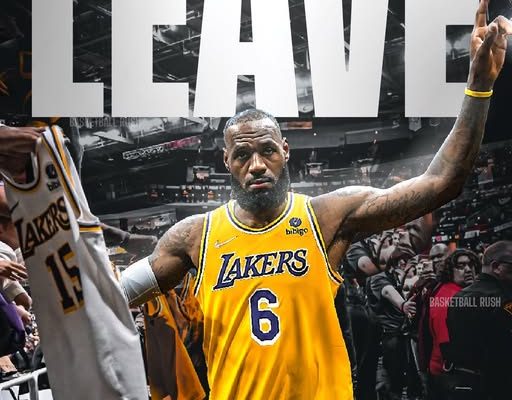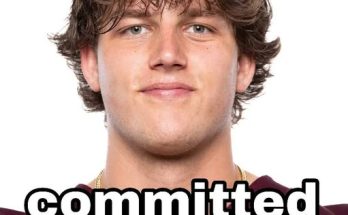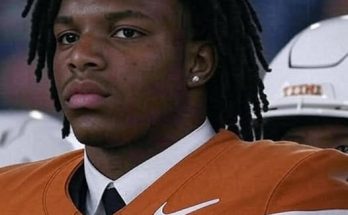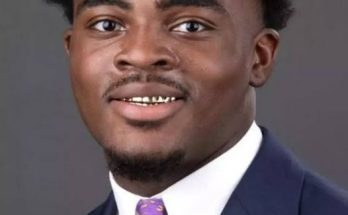LeBron James, the face of basketball for over two decades and the centerpiece of the Los Angeles Lakers since 2018, appears to be nearing the end of his storied tenure with the purple and gold. According to multiple reports and growing speculation around the league, LeBron has been quietly preparing for life after the Lakers for some time. While nothing is set in stone, the writing on the wall suggests that the 2025-26 season could be his final chapter in Los Angeles, and possibly his final run in the NBA altogether—though retirement is far from guaranteed.
For Lakers fans, the news hits with the weight of finality, even though it’s been looming for a while. LeBron signed a two-year, \$104 million extension in 2024 that will carry him through the 2025-26 season, aligning his contract with the potential NBA debut of his son, Bronny James. That alignment was no accident. The elder James has long made it known that he dreams of sharing the court with Bronny, and that ambition has shaped much of his decision-making in the latter part of his career. While Bronny was drafted by the Lakers in 2024, the odds of him remaining with the team long-term are still uncertain, especially given his development path and the constant shifting nature of NBA rosters.
What’s clear is that LeBron’s commitment to the Lakers beyond this contract is tenuous at best. Behind the scenes, there’s a growing belief among NBA insiders that the King has been contemplating his exit strategy for months, if not years. It’s not so much about dissatisfaction—although frustrations with roster construction and playoff inconsistencies have played a role—but more about legacy curation and freedom. At 40 years old, LeBron is keenly aware that every remaining season counts. He wants control over his narrative, his environment, and most of all, his ability to walk away on his terms.
The Lakers, for their part, are bracing for impact. Team governor Jeanie Buss, GM Rob Pelinka, and head coach JJ Redick have all expressed a desire to keep LeBron as long as possible, but they are also realistic. They know that building a future around a player who might leave in a year is not a sustainable strategy. That’s why the Lakers have subtly pivoted this offseason, adding younger talent like Dalton Knecht, re-signing Austin Reaves, and keeping financial flexibility to pursue stars via trade or free agency. The idea is simple: prepare for a future without LeBron without appearing to push him out the door.
Sources close to the Lakers’ front office suggest that contingency planning began even before the 2024-25 season tipped off. Internally, they’ve debated whether to chase one final championship with LeBron or start preparing the runway for the next era. That debate has intensified after yet another second-round playoff exit. While LeBron continues to defy age and expectations—averaging nearly 25 points, 7 rebounds, and 7 assists per game—the team’s success hasn’t kept pace with his individual brilliance. The championship they secured in the Orlando bubble in 2020 remains the only title of the LeBron-Lakers era, a fact that has not gone unnoticed by fans or critics.
LeBron’s impact on the Lakers franchise goes beyond the stat sheet. Since arriving in 2018, he helped restore credibility to a team that had missed the playoffs for five consecutive years. His presence elevated everything—ticket sales, media exposure, team valuation, and the careers of those around him. He brought with him a championship mindset, one that ultimately culminated in the 2020 title, but also a level of expectation that not everyone in the organization could always live up to. And now, as the end of his time in Los Angeles seems near, the question is not just where he’ll go next—but what the Lakers will look like once he’s gone.
LeBron’s departure would be seismic for any franchise, but for the Lakers—a team that thrives on star power—it would be especially destabilizing. Los Angeles has always been about superstars, from Magic Johnson to Kobe Bryant, and now LeBron James. If he leaves, the Lakers will face pressure to quickly replace that gravitational force, whether through trades, free agency, or banking on the development of their younger core. There is no obvious heir apparent, which adds urgency to their current front office moves. The recent buzz about a potential “consolidation trade” involving Knecht and others shows that they’re trying to remain competitive in both the short and long term.
For LeBron, the decision to move on—or retire—will be a personal one. He has often said he wants to spend more time with his family and that playing with Bronny would be the ultimate career milestone. Whether that means following his son to another team or encouraging the Lakers to keep Bronny around is up for debate. But what’s undeniable is that his focus has shifted. At this stage of his career, he values narrative, family, and freedom more than ever. He no longer needs validation, rings, or records. He is the all-time leading scorer, a four-time champion, and arguably the greatest player in history. His next move will be about fulfillment, not legacy.
This isn’t the first time rumors of LeBron’s departure have surfaced, but the current wave feels different. There’s an emotional undertone, a sense of finality, that wasn’t there in previous years. Even LeBron’s public comments have grown more reflective. He’s praised younger players more often, hinted at passing the torch, and spoken openly about life after basketball. In recent interviews, he’s even dodged questions about his Lakers future, preferring instead to “focus on the moment” and “enjoy the ride.” For a player known for strategic thinking and long-term planning, those deflections are telling.
Fans in Los Angeles are preparing for the inevitable. While many still hope LeBron stays through the end of his contract and perhaps beyond, most understand that this era is winding down. The jerseys, the murals, and the nightly spectacles at Crypto.com Arena have all contributed to a memorable chapter in Lakers history—but every story needs an ending. And if this is indeed LeBron’s final year in the purple and gold, it will be remembered as a bittersweet farewell to one of the game’s most influential icons.
League executives are already speculating about possible landing spots should LeBron choose to continue playing elsewhere. The Cleveland Cavaliers always linger as a sentimental option, a full-circle moment that would see LeBron retire in his home state. Miami is another theoretical destination, given his success with the Heat and relationship with the organization. But increasingly, insiders believe he may opt for a non-traditional move—perhaps a team willing to draft or sign Bronny and allow LeBron to close out his career alongside his son. Such a scenario would be unprecedented and poetic, the NBA’s greatest player passing the baton in real time.
In many ways, the end of LeBron’s Lakers era is emblematic of his entire career: calculated, emotional, and headline-generating. It also serves as a reminder that even legends have limits, that no reign lasts forever. What LeBron has accomplished in Los Angeles will be debated and dissected for years to come. Was one championship enough? Did the front office do enough to support him? Was it worth the cost of youth and flexibility? The answers will depend on perspective, but no one can argue that it wasn’t impactful.
For now, all eyes will remain on LeBron’s every move this season. Every game could be a curtain call. Every highlight could be a memory in the making. And every interaction with Bronny could carry deeper significance. Lakers Nation will continue to rally behind their superstar, hoping for one last run, one last title, one last moment of magic. But deep down, they know the King may soon be ready to leave his Hollywood throne behind. And when he does, it will mark not just the end of a Lakers chapter—but the end of an era that changed basketball forever.



